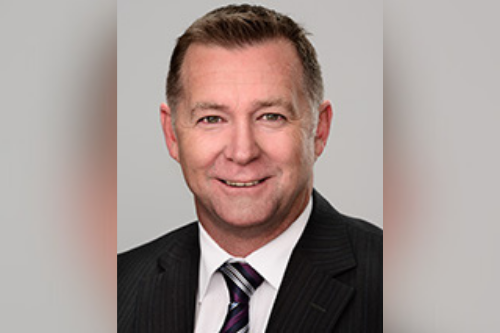

The latest claims report from the Australian Prudential Regulation Authority (APRA) shows that public and product liability claim payouts increased by 13% to more than $1 billion during 2020. Insurance industry insiders say Australia’s public liability insurance market is becoming unsustainable and is already unaffordable for many small businesses. Glenn Ross (pictured), CEO of MECON Insurance, is calling for a uniform national scheme where the cost of claims is compensated by the government.
Many key industries use public liability insurance including hospitality, retail, construction, health and transportation.
“We’re being crushed in the liability space due to the frequency of bodily injuries and the increase in size of the average worker to worker claims. The bottom line is that there isn’t enough money to sustain these claims,” said Ross, whose company offers a range of construction industry insurance products.
“The issue [of unaffordable public liability insurance] can be attributed to a societal trend towards increased litigation, the increasing average cost of court settlements and the unpredictable cost of bodily injury claims for insurers,” he said.
The MECON CEO said when the courts award large settlements, insurance companies like his are forced to increase premiums. He said the result is small businesses are facing collapse because the insurance products necessary for their operation are becoming unaffordable or inaccessible.
His view is supported by the Australian Small Business and Family Enterprise Ombudsman. Last year, Ombudsman Kate Carnell released an Insurance Inquiry report.
“Our Insurance Inquiry has revealed we are in the grip of a national crisis that is killing small businesses,” said Carnell.
The report found that the insurance market was failing to provide essential small business insurance products that are affordable.
“Public liability insurance has become almost impossible for small businesses to obtain, particularly those that offer recreational activities such as caravan parks, quad bike tours or jet boating to name a few.”
Carnell said some small businesses premiums had tripled in a few years, pricing them out of the market.
Ross said in the construction sector, contract work insurance premiums have increased by up to 35% over the last year. Construction liability insurance costs also rose, with excess layer pricing increasing by up to 30%.
According to industry research group IBISWorld, Australia’s construction sector has over 360,000 individual businesses, many of them small-scale builders. They all require public liability insurance for protection and contract works.
However, Ross said the issue goes beyond construction.
“Our small businesses, schools, council, sports clubs, and popular tourist spots are facing financial collapse from a single accident or are governed by tight rules and regulations through the fear of a lawsuit. Even playing tackle rugby or football at school is prohibited because the liability risk is too high,” he said.
He recalled a graphic example.
“The other day I was watching TV and there was a mountain in South Australia belonging to indigenous Australians that opened to the public several times per year,” he said. “They decided to permanently shut it down. The Elder said that the decision was because they couldn’t afford the cost of the public liability insurance. It made me really sad that Aussies are missing out on unique opportunities because of the rising cost of liability insurance.”
The MECON CEO thinks the answer is a national public liability scheme.
“We believe that Australians could benefit from a uniform national scheme where the cost of claims is compensated by our government,” said Ross.
He said New Zealand’s Accident Compensation Corporation (ACC) offers a possible model. The ACC provides compulsory insurance cover for personal injury for employees, paid for by a uniform levy on all workers.
The system can be traced back to 1900 when New Zealand became one of the first countries to adopt a ‘no fault’ Worker’s Compensation Act. In 1974, the government established the ACC to manage compensation programmes.
“This hugely successful system means that patients seek compensation for medical injuries not through malpractice suits, but rather through a no-fault compensation system,” said Ross.
The Insurance Council of Australia (ICA) says the affordability and availability of insurance products, including public liability insurance, are a serious concern for Australian SMEs. After an independent review by former insurance executive and regulator John Trowbridge, the ICA said solutions will require collaboration between insurers, small businesses and government.
However, the only government-related options proposed by the ICA included the removal of taxes and charges and collaboration to reduce regulatory barriers.
